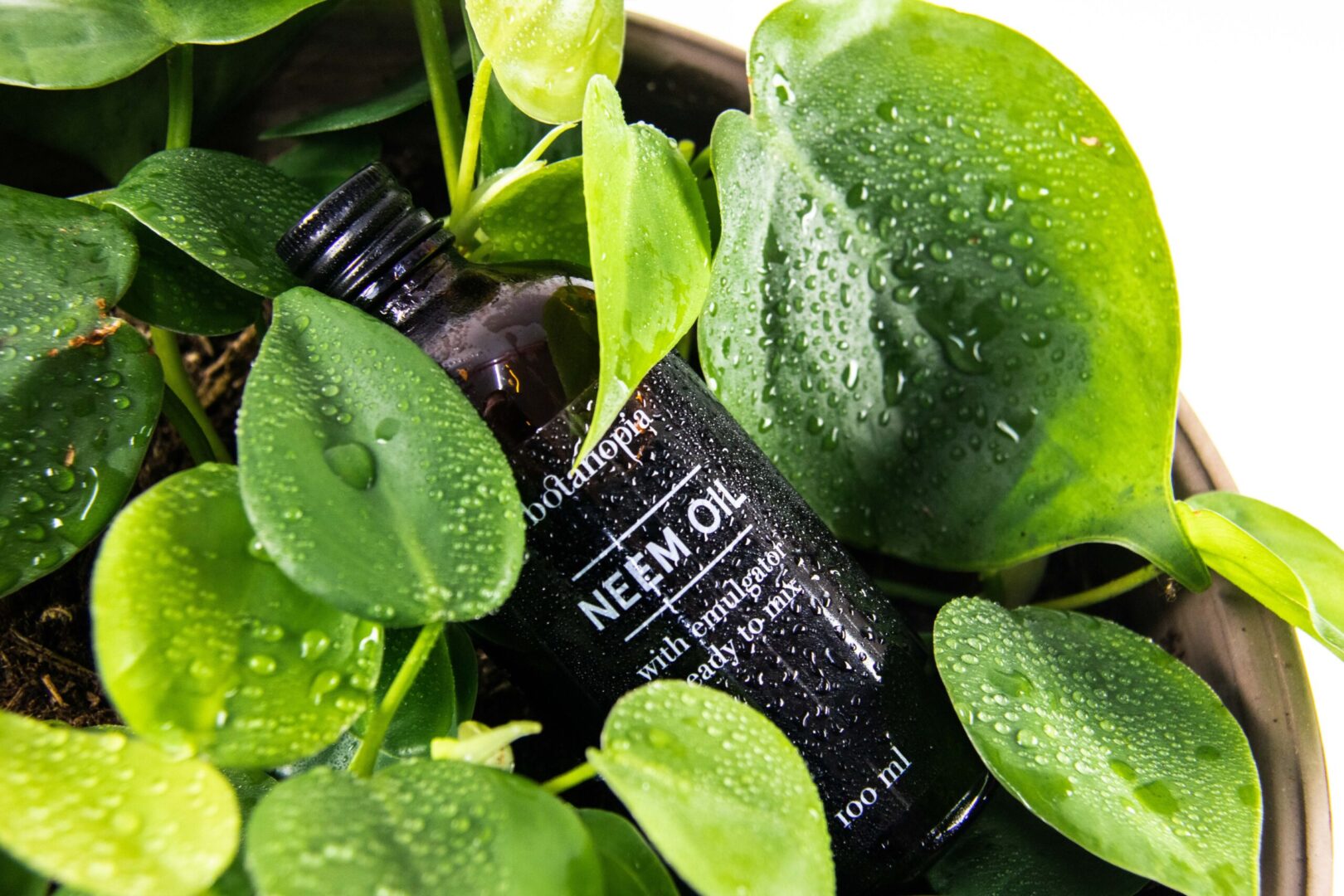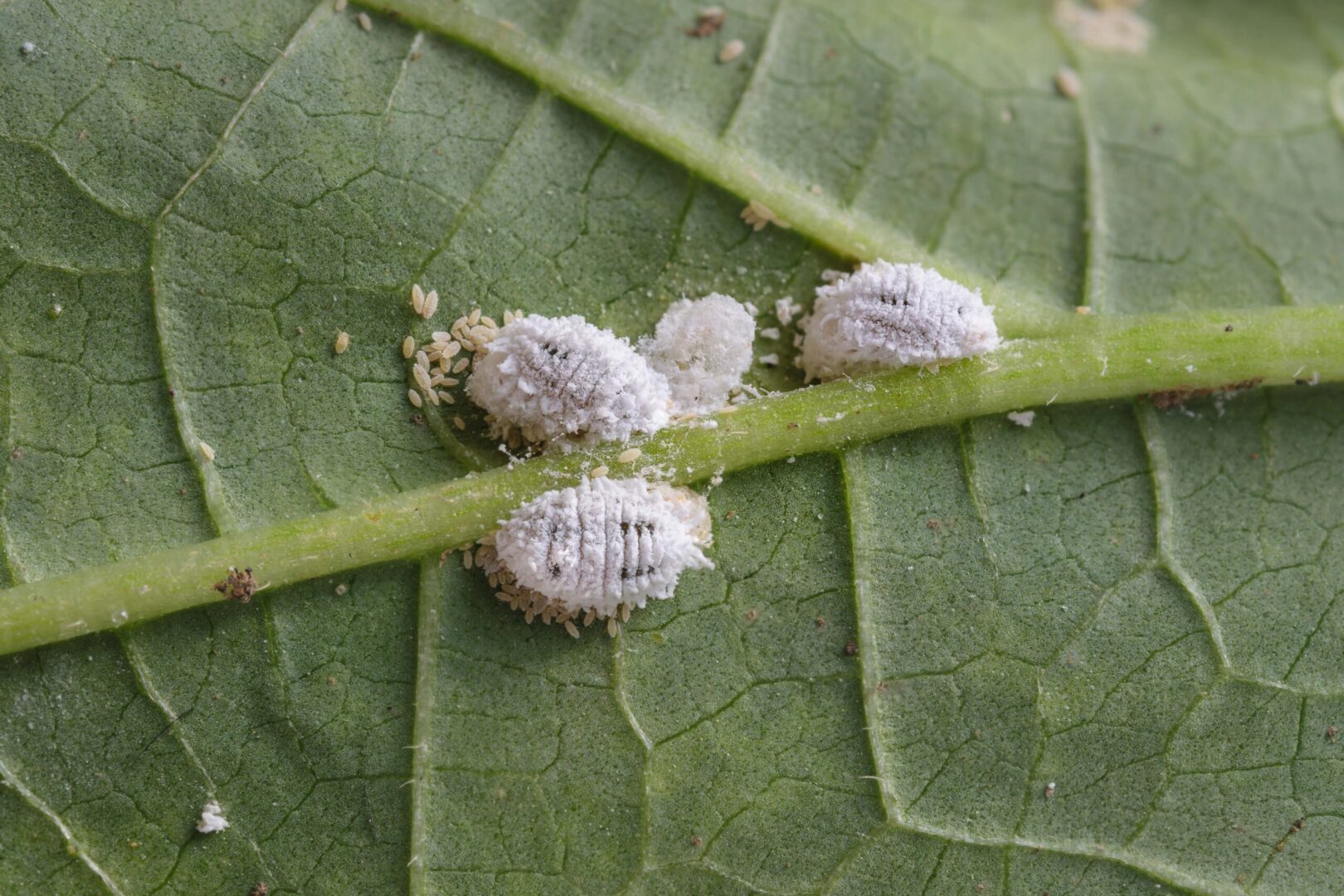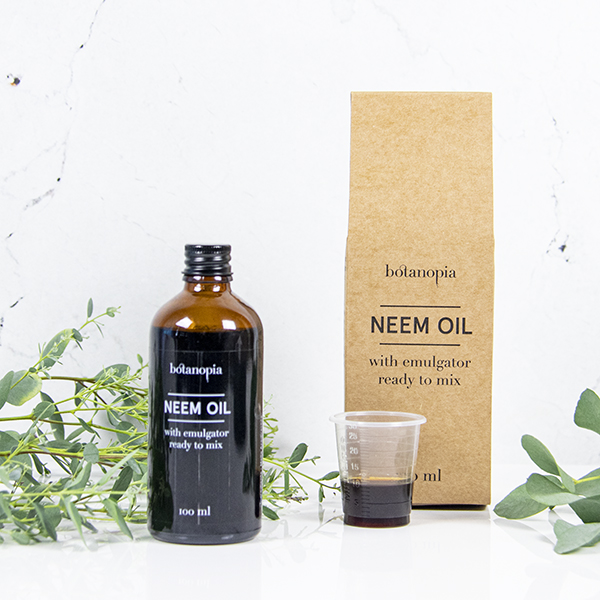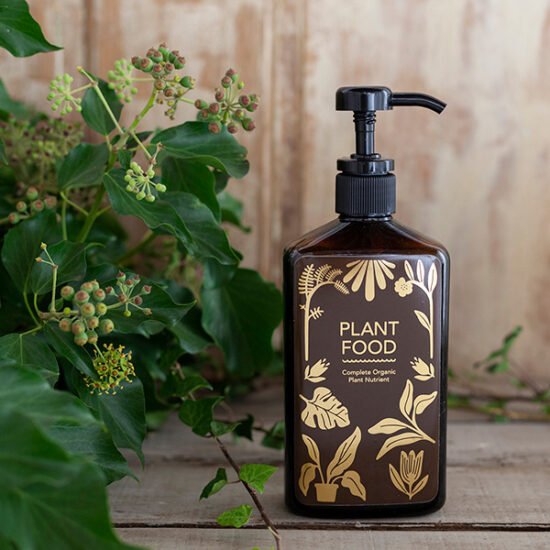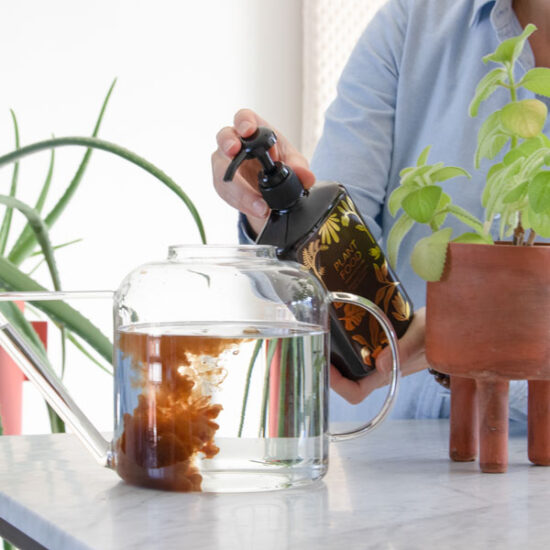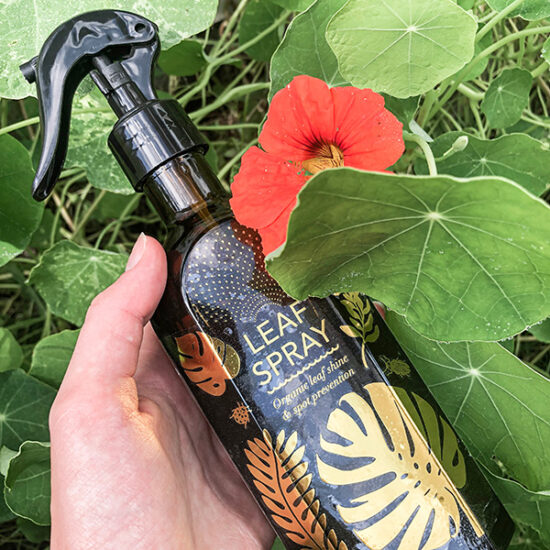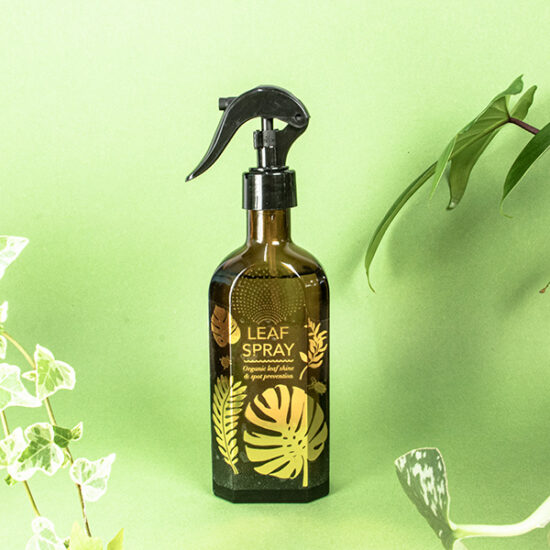Neem oil – Benefits, uses and application on plants
What is neem oil?
Neem oil (also known as margosa oil) is a high-quality plant oil extracted from the seeds of the neem tree. By using a cold pressed method, all active properties of the tree are maintained. The so-called Azadirchta indica is native to Southeast Asia, where it has been used as a remedy for thousands of years. Like most oils, neem tree oil is somewhat thicker in consistency and recognisable by its brown colour and distinctive smell.
Due to its many positive properties, the oil is used in many areas, such as cosmetic products, and household and animal care. The vegetable oil has also proven itself as natural plant protection and is often known among hobby gardeners as a miracle cure for pests.
Neem oil: natural plant protection
Pests find their way onto our green friends from time to time, much to the sorrow of every plant owner. They can cause everything from a minor inconvenience to the actual death of the plant – depending on the type and severity of the infestation. Once there, it is difficult to get rid of the little critters. Rather than turning to chemicals, neem oil can help as a natural alternative. It is effective against different kinds of pests such as aphids, slugs, ants and spider mites and also treats fungal diseases such as mildew. It can therefore be used for the prevention of pests or in acute infestations on both house or garden plants. Moreover, pure Neem Oil is organic and biodegradable, which means that it does not settle in the environment.
How does neem oil affect insects?
Unlike chemical insecticides, neem oil does not kill directly, but interferes with the hormonal balance of the insects. The main active ingredient, azadirachtin, prevents the pests from reproducing and the larvae developing. Due to the strong smell of the oil, the treated plant becomes inedible for the insects, which results in an inhibition of feeding behaviour. The stopped reproduction and the missing food source finally leads to the death of the insects.
To avoid an acute insect infestation from the get-go, neem oil can be used preventively. The smell of the oil plays a decisive role and makes the plant unattractive for the insect. It acts as a repellent. In both cases, the insects do not develop any resistance, so it will continue to work for you now and in the future.
What does Neem oil smell like?
Neem oil has a strong and distinct odor that can be described as nutty, earthy, and slightly bitter. Some people liken it to the smell of Maggi liquid seasoning 😉
Botanopia Neem oil is also blended with mint essential oil for a more pleasant smell.
Does neem oil also hurt beneficial insects?
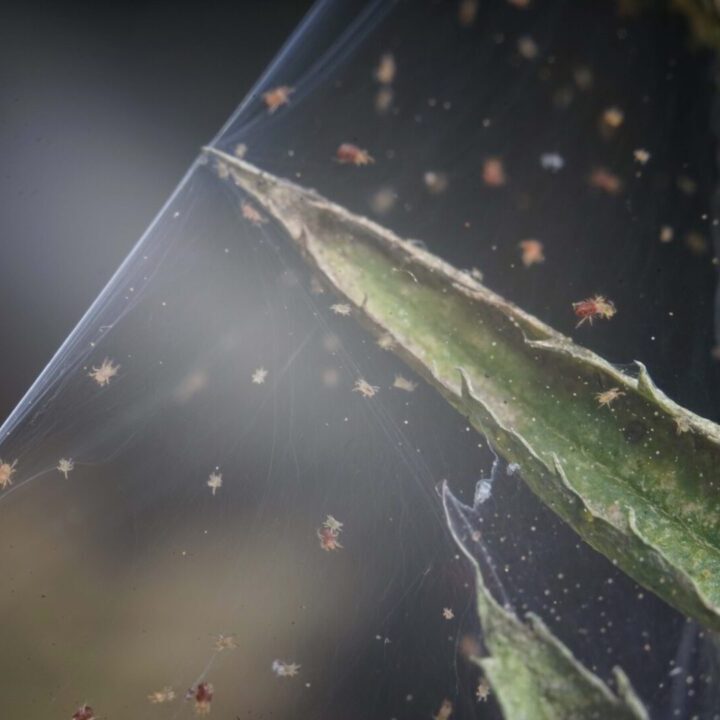
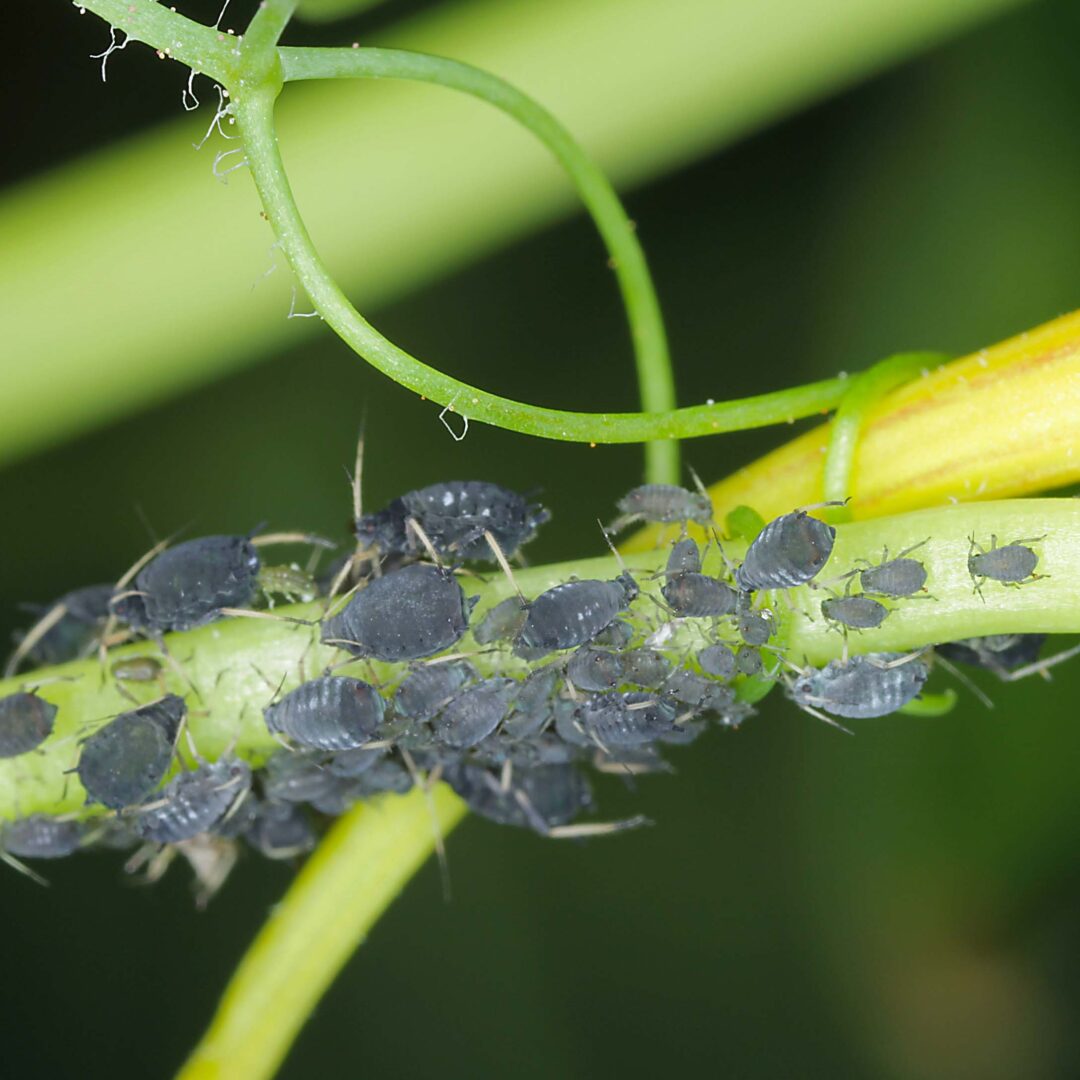
Neem oil has only an impact on pests and does not harm any other insects like butterflies, ladybugs or bees. Those animals don’t rely on the plant as a food source and are therefore not affected by the oil. With the use of neem oil insects can still live on the plant, just not eat it.
How to use neem oil on plants?
When to use neem oil?
The use of neem oil depends on the needs of your plant, as it is effective for both prevention and acute infestation.
If there is an acute infestation, you should mix the oil with water and spray it generously on the leaves of your plants, including the underside and the soil. Let it sit for 10 min, then gently wipe the leaves off with a soft cloth to keep them dust-free and shiny.
If you want to prevent your plants from insects, add the oil to your watering can. The plant will absorb the neem through its roots, strengthening them and protecting the plant from pests.
How often should you apply neem oil for plants?
You should apply it around one or two times a week to get the acute infestation under control. If you just want to prevent your plants from any pests, you can use the neem oil every 7- to 14 days. Note that strong sunshine can cause burning on plant since it’ll heat up the oil. It is best to spray the plant in the evening or in a darker place in your home.
What plants not to use neem oil on
You can use neem oil on almost all plants, but you should be a bit more careful with plants in a sensitive state. This is the case for younger plants, especially those that are only a few months old. Also, repotting leads to a lot of stress, which is why you should avoid using neem oil on your plants the days after. To find out how well your plant is coping with the vegetable oil, you can first test it on some leaves before applying it to the whole plant.
Another point to consider is the leaf structure of your plant. Neem oil will only be effective on leaves with a smooth surface. Hairy or prickly leaves provide an escape route for the pests, where the insect can hide from the oil.
Neem oil use on edible plants
Neem oil is safe to use on ornamental and edible plants. It can be sprayed on all kind of fruits, vegetables and edible flowers. Just wash them thoroughly with water before consuming.
Can you kill plants with neem oil?
Neem oil isn’t generally known for killing your plants, unless you use it in direct sunshine. If you apply the neem as mentioned on the packaging of the oil, your plant won’t take any damage.
Neem oil 100ml
Neem Oil concentrate, to prevent and to treat fungus issues, bacteria, and insects for your plants.
- Organic and biodegradable
- Neem oil extract, from the tropical neem tree using a cold-pressed method
- 100 ml bottle with a practical measuring cup for easy dosage (exists also in 50ml)
- Can create 10 L of protective plant spray when mixed with water
How to mix neem oil?
A few millilitres of neem oil per litre of water are usually enough to keep your plant healthy and thriving. The recommended dosage is 1:100, i.e. 1ml of oil to 100ml of water or 2.5ml for 250ml of water.
The active ingredients in neem oil begin to decompose after being mixed with water. This makes the mixture most effective within 24 hours. We recommend mixing only the amount that you want to use immediately.
The oil should also be stored in a cool and dark place.
Neem oil with emulsifier
In order to obtain a better solubility of neem oil in water, the use of emulsifiers, like Rimulgan, is recommended.
What is Rimulgan?
Rimulgan is an emulsifier made from castor oil and often associated with neem. It is mainly used to make neem oil soluble in water and therefore easier to use.
The ready-made mixture of neem oil and rimulgan can thus be applied directly. You can buy the neem oil with rimulgan in our Botanopia webshop.
Take care of your plant with our
These might interest you
-
Out of stock
-
Out of stock

